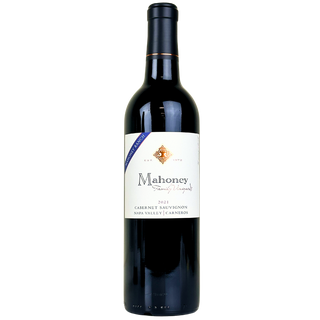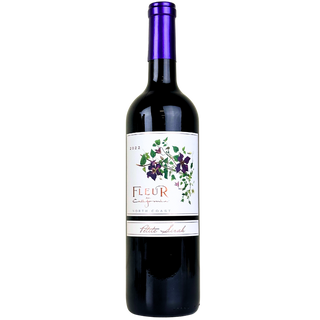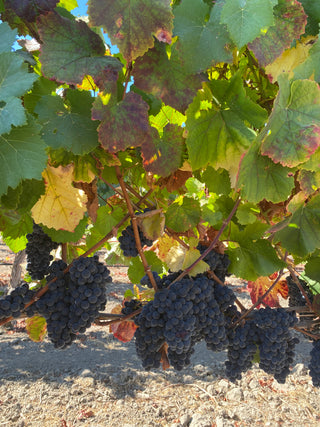Wine culture is several thousand years old. Already in ancient times (from 8000 or 6000 BC), people knew about the fermentation of grapes into an intoxicating drink; the discovery may well have been a coincidence.
Even then, wine developed into an important agricultural product that had economic as well as medical, social and ritual significance. In antiquity, every advanced civilisation had a deity who represented wine and the enjoyment of wine, for example Osiris in Egypt, Dionysus in Greece and Bacchus in Rome. According to the Bible (Book of Genesis), Noah is considered the first person to cultivate wine.
According to the latest scientific findings, viticulture probably has its geographical origin in the Near East, in the area of today's Georgia (where viticulture history goes back more than 7,000 years), Armenia and south-east Anatolia, i.e. in Transcaucasia and historical Mesopotamia. From ancient Persia, wine culture spread over the centuries across the Mediterranean to Central Europe and finally to the New World.

The roots of European viticulture lie largely in the wine culture of ancient Greece. Professional viticulture already existed in the Mycenaean culture in the 16th century BC, and in the 8th century BC the Greek poet Homer described wine as the drink of heroes in his "Iliad". Both the Greeks and the Romans then brought the knowledge of viticulture and winemaking to the territories they conquered in Europe and North Africa. In Greek and Roman drinking culture, wine had an important social and religious role.
In the Middle Ages, wine culture flourished in Central Europe, also due to the influence of the Church. From the 11th and 12th centuries AD, the wine trade and production in France began to flourish in the south-western regions(Gascony, Bordelais, Cahors) and in Burgundy. In the 16th century, wines from Portugal(Douro), Spain(Andalusia) and Hungary(Tokaj) achieved greater international fame, and the 18th century saw the beginning of the triumphant advance of fine sparkling wines from the French Champagne region. A milestone in European wine history was the classification of vineyards in the Bordeaux region in 1855. In Italy, from the second half of the 19th century, the growths from Piedmont(Barolo) came to growing fame.
The German name "Wein" comes from the Latin word "vinum", which was also the inspiration for the names in numerous other European languages: "wine" (English), "vin" (French), "vino" (Italian and Spanish), "vinho" (Portuguese); the Greek word "oinos" is also related to it.

Historical Fun Facts:
- The emergence of a “wine culture” in the mountainous Near East (Iran, Georgia, Turkey, Greece), came as early as the Neolithic period. Not much is known about how winemaking moved from east to west across the Mediterranean Sea. What we do know is that merchant seafarers, including Canaanites and later Phoenicians and Greeks, were the principal conveyors, who established colonies along the coasts and on one island after another, where viniculture eventually reached Italy and France.
- Wine was diluted in ancient times, not only to lower the alcohol content (to drink more), but to be able to sanitize or purify the water. The natural antibacterial qualities of wine would help purify the unclean water at the time. Due to this, anyone, of any age, would drink their water with wine as it was a safer way to consume water.
- Wines that were not diluted were held for the poorer population as the non-diluted wine was very strong and vinegary. Nobles drank the wines that were sweetened up with honey and water to make it more drinkable.
- "It's incredibly likely that someone 1,000 years ago was drinking something that's pretty much genetically identical to what we drink today," Nathan Wales (a study co-author and a lecturer at the University of York who specializes in paleogenomics (the study of ancient DNA)) says in this article on NPR. It looks like current varietals like Pinot Noir and Syrah are genetically very similar to those that the Ancient Romans drank.
- Archeologists in Italy have excavated an ancient winery and decided to make wine exactly as the Romans did, without any chemicals and fermented the wine in large terracotta pots instead of barrels. They have found that Roman techniques were more or less in use in Sicily up until a few decades ago.
- Herbal and pine resin additives were found in Etruscan wine pots in the in Celtic France showing that there was a medicinal role of wine in antiquity, as well as used as a means of preserving it during marine transport. Pine tar was used as a water-proof agent to protect the wine in the terracotta pots and add flavor to the wine.
- "The Celts, the native inhabitants of large parts of Western Europe in the first millennium B.C., were lured into the wine culture and eventually saw the advantages of local production to promote their own trading interests. The Gallic wine culture spread inland after the Roman conquest up the Rhone and Rhine rivers to the rest of Europe where, centuries later, primarily monasteries, such as the Cistercian abbey of Vougeot in Burgundy, refined viniculture to such a degree that it became a model for the rest of the world."

Read more in the articles below:
https://learn.winecoolerdirect.com/history-of-wine/
https://www.pnas.org/doi/full/10.1073/pnas.1216126110
https://magazine.wein.plus/faq/basics/where-does-wine-come-from-historically
Terry Gross's Fresh Air interview with Paul Lukacs about the History of Ancient Wine
https://www.npr.org/2012/12/04/166186416/inventing-wine-the-history-of-a-very-vintage-beverage







